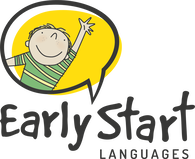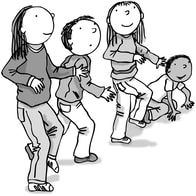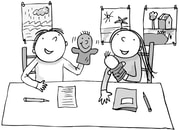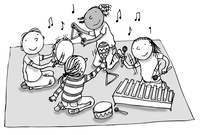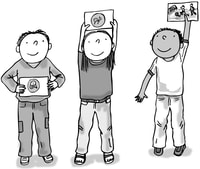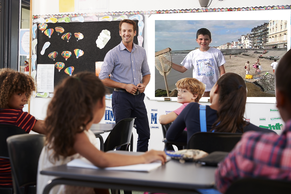See how Early Start helps primary children enjoy success with languages:
For pupils, seeing real children in their everyday lives really brings language lessons to life; it is about their culture and how they live - not just rules of grammar ...
Hear the words first for better pronunciation: your pupils' model is the real native speakers they see on-screen using the language in context, rather than reading from a textbook page and relying on translation.
Careful progression doesn't overwhelm young learners with too much to learn too soon. Each section builds on what has been learned before. Using a "primary approach" avoids repeating the way children will learn languages in later secondary schooling.
A foundation for later language learning: Early Start introduces basic concepts of how the language works in an age-appropriate way, aiming to teach a small amount well.
Transforms dull memorising into enjoyable games: Early Start shows how language lessons can centre on group interaction and inter-pupil communication, with a competitive element.
Develops the potential of songs - using rhythm, catchy tunes and repetitive choruses to get pupils used to the new words. Find out more about "Learning with Early Start songs" with examples.
Great support for non-specialist teachers - with detailed help for lesson planning in the Teacher's Guide, together with the "talking dictionary" which helps the non-specialist linguist with pronunciation issues.
Cross-curricular links to help you embed languages in the wider curriculum - exploits the unique advantage of having the language taught by the class teacher who knows the children well and delivers all the rest of their curriculum.
|
See for yourself!
Try out Early Start materials with your classes, discuss with your colleagues - and show it to your senior management team. Click for a free trial of Early Start French, Spanish, German or Russian. |
